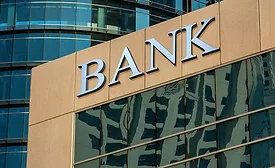Home » bank security
Articles Tagged with ''bank security''
Fighting Fraud in the Era of Real-Time Payments
How “Layering” Fraud Detection Could Help Hasten Detection and Response
October 30, 2018
Sign-up to receive top management & result-driven techniques in the industry.
Join over 20,000+ industry leaders who receive our premium content.
SIGN UP TODAY!Copyright ©2026. All Rights Reserved BNP Media.
Design, CMS, Hosting & Web Development :: ePublishing







